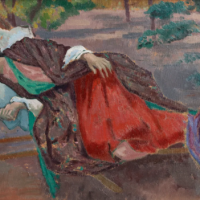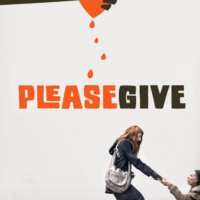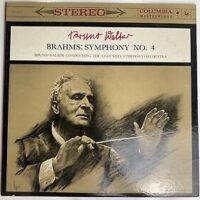In a New York Times op-ed, Laura Raicovich and Laura Hanna call for a generous increase in the way the government, in particular the federal government, funds arts institutions: As policymakers in Washington gather to draft a new budget for fiscal year 2025, they could solve culture’s current financial crisis and radically reshape how we think about sustaining the arts. They could do this by tapping into abundant appropriations that already enjoy bipartisan support. To make this possible, first we need to stop treating museums, theaters and … [Read more...]
Even Richard Nixon has got Soul
(January 24, 1970, Richard Nixon in Philadelphia to present the Presidential Medal of Freedom to Eugene Ormandy: AP photo). A few days ago I wrote about a post by Thomas Wolf on public arts support in the US - I focused on what he said about the income tax deduction for charitable donations as an “indirect” arts policy. Not to get all obsessive about his post (most of which is unobjectionable!) there was one more thing that struck me. He wrote: In 1977, the U.S. Congress’s appropriation for the National Endowment for … [Read more...]
On the ingratitude of artists receiving a guaranteed income from a benefactor
(“Vanessa Bell in a Deckchair” by Roger Fry) From Robert Skidelsky, John Maynard Keynes 1883-1946, Economist, Philosopher, Statesman: The autumn of 1925 found Keynes, as usual, complaining of overwork (‘too much to do, no leisure, no peace, too much to think about…’). A substantial commitment was organising the London Artists’ Association, in homage to both art and friendship. The idea was to give the leading Bloomsbury painters and their protégés - a group headed by Duncan Grant, Vanessa Bell and Roger Fry - a guaranteed income, so … [Read more...]
On “indirect” support for the arts
Thomas Wolf has posted a short piece on the history of the National Endowment for the Arts, whether it is likely to survive the coming second Trump administration, and the tax deduction for charitable contributions. I’m going to focus on that last bit… People who itemize their income tax deductions can claim contributions to registered charities. Wolf writes: The U.S. government does play the role of support to many sectors including the arts and it does so at a much higher level than other countries by almost any measure. But … [Read more...]
Art, Politics, Trump
A favourite old book of mine from my childhood is Kenneth Clark’s Civilisation, which goes along with his television series. It is old-school history of western civilisation, observant and wise. In his first chapter he travels to those monasteries around Ireland and Great Britain - Skellig Michael, Iona, Lindisfarne (pictured above) - where in the sixth and seventh centuries monks were able to preserve and to create great works of writing and art, saving them from the Viking invaders. The Vikings possessed great energy and courage, and … [Read more...]
Music and Wellness
Daniel Levitin has a short article in Wired on the future of music, therapy and well-being. I do not like it. Preliminary: Levitin is James McGill Professor Emeritus of Psychology and Neuroscience at McGill University, and the author of many books - I came to know him long ago for his This is Your Brain on Music. In terms of people who are very smart about the science of what is happening with our little grey cells when we listen to a song, he must rank as one of the top. More preliminary: in the article, he … [Read more...]
The fate of the NEA in the coming administration
On NPR this morning is a short piece pondering the fates of the NEA and NEH under the second Trump administration. It is optimistic, though given the Wall Street Journal article by Musk and Ramaswamy this morning (they obviously didn't write it - but it carries their names), which, in looking at things to cut, refers to the federal funding of the Corporation for Public Broadcasting among other agencies, I cannot bring myself to share in the optimism. The reporter gives two reasons that the Endowments might be spared being cut. The first … [Read more...]
A dialogue on the nature of arts participation
When I was a child we had some really old Peanuts paperbacks, now long lost, and for reasons unknown - some spirit knew I would end up in cultural policy? - this one stuck in my head, practically verbatim. Anyway, from April 6, 1958, thank you Mr. Schulz. … [Read more...]
Vibrant (sic)
In the 90s I lived in Regina, Saskatchewan. When I moved there I had never been before, but I had been looking for work, my PhD in-progress dissertation was a bit of a train wreck (I finished it eventually), and the university there was kind enough to offer me a position. Our lives go through stages, and for me a bit of moving around, but when I look back on my Regina days, the thing I remember most fondly was the group of friends I had who were all very interested in contemporary culture, who liked to take it in, and talk about it at the pub. … [Read more...]
How should we evaluate guaranteed income for artists?
Back in the day, I took a few years leave from academia to work in the public service, as a policy advisor to the Cabinet of the government of the province of Saskatchewan. We would receive from various line departments proposals for policy changes or new initiatives, and a large part of my job was to work with our team to evaluate these proposals and write up advice to the Cabinet. I have never forgotten how my boss in this office approached proposals: she would ask, as a gateway question, “what problem are they trying to solve?” If there was … [Read more...]
The predictable result of arts organizations and cell phones
The Inquirer reports that cell phones are presenting a problem at the Philadelphia Orchestra: Another orchestra season, another soul-killing cell phone interruption. As banal as it may be, Saturday night’s mid-Bruckner cell phone incident at the Philadelphia Orchestra is a painful thing to ponder, a kind of musicus interruptus from which a performance never really recovers. Yannick Nézet-Séguin wasn’t asking for anything unreasonable when he once again suggested to the audience that maybe they … [Read more...]











